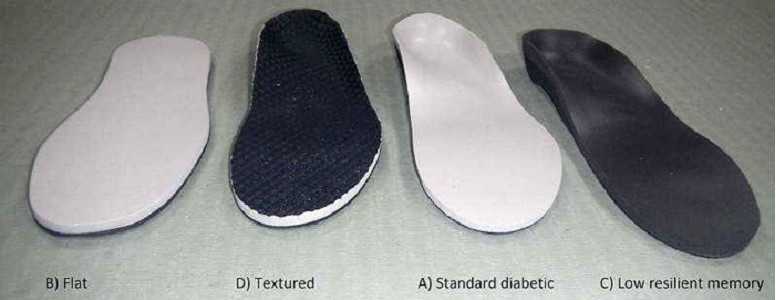Arch-supporting insoles used to prevent people with diabetes developing foot ulcers could be adversely affecting the balance of users, according to university research.
The study investigated how different insoles could improve balance in people with diabetes. For older patients with the condition, lack of balance can be particularly problematic, especially for those with foot ulcers.
The Getting the Right Balance study, carried out by the Balance Ulcer Prevention (BEUP) research group, found that insoles containing an arch support increased swaying and reduced balance in the wearer whilst standing still, while insoles without arch support did not.
Dr Joanne Pasto, podiatrist and research fellow of National Institute of Health Research (NIHR), who led the study said: “Falls are a major concern for people with diabetes and neuropathy and it’s surprising that very little research has been done around different insoles’ effects on balance, when you consider that wearing padded, or offloading, insoles forms a recommended element of the diabetic foot ulcer prevention strategy.”
The research, carried out at Plymouth University, involved participants with diabetes being asked to rate how steady they felt when wearing different pairs of insoles whilst standing with their eyes closed on a mat designed to measure balance.
The insoles used included a standard diabetic offloading insole and three alternative design variations; an insole shaped to the foot with a textured top surface, a flat insole, and an insole shaped to the foot with a slow return memory material cover.
Speaking about the results, Dr Paston said: “The standard diabetic offloading insole and the insole with the slow return memory cover showed increased body sway and reduced balance when compared to the others – the common entity was the arch fill.
“The results suggest that insole design might artificially alter the sense of awareness on the soles of the feet that contributes to the maintenance of postural stability in people with diabetes and neuropathy.”
Paston added that the results should be met with caution. It is currently unclear if the variations in insole design altered the balance of participants during their day-to-day activities. But “what is clear is the need to develop an offloading insole that does not compromise balance and that people with diabetes feel are safe to wear”.
The study took place as part of a five-year research schedule funded by NIHR to develop and test a dual purpose insole that can address both balance and reduce the risk of foot ulcers in people with diabetes.
Picture: University of Plymouth
What's new on the forum? ⭐️
Get our free newsletters
Stay up to date with the latest news, research and breakthroughs.








